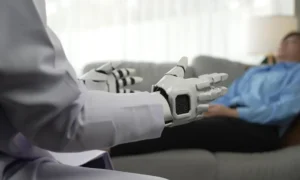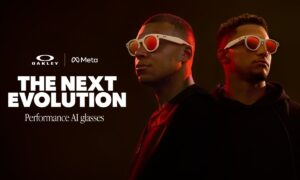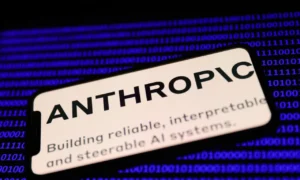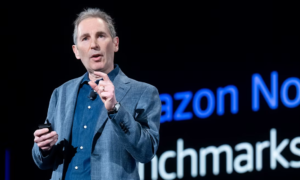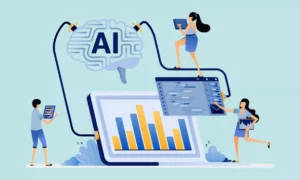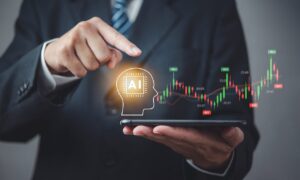Something profound happened between March 2023 and today. Nearly a billion people discovered they could outsource their thinking to machines. What began as experimental curiosity has morphed into cognitive dependency at scale.
The transformation isn’t just about productivity tools anymore. It’s about fundamental changes to human cognition itself.
Inside the Great Mental Handoff
Walk into any modern office and you’ll witness the shift firsthand. Employees who once labored over email drafts now generate them in seconds. Strategic presentations that required days of research emerge from prompts in minutes. Complex analyses that demanded expertise now flow from conversational queries.
OpenAI’s user base explosion tells the story in numbers. Two years. One billion users. The fastest technology adoption in human history, outpacing even social media’s meteoric rise.
But velocity comes with consequences few anticipated. Microsoft researchers, working alongside Carnegie Mellon University, uncovered a troubling pattern. The more people trust AI outputs, the less they engage their own critical thinking faculties. Confidence in artificial intelligence inversely correlates with human cognitive effort.
Consider the typical knowledge worker’s journey. First contact with ChatGPT feels revelatory. Ten minutes saved on routine tasks. Twenty minutes recovered from research drudgery. Success breeds reliance. Complex assignments follow simple ones. Soon, the AI handles strategic thinking while humans become editors of machine-generated thought.
Each outsourced task represents a small surrender. Multiply these micro-abandonments across millions of users, and you glimpse the scope of what’s unfolding.
The Coming Workforce Fracture
Traditional predictions about AI’s workplace impact focused on job displacement. The reality emerging looks different. Everyone will use AI within five years. The question isn’t who adopts the technology, but how they engage with it.
Two distinct user archetypes are crystallizing across industries. Call them cognitive drivers and cognitive passengers.
Passengers embrace full delegation. They input problems, copy solutions, submit results. Speed becomes their primary metric. Efficiency justifies intellectual passivity. In quarterly reviews, they celebrate faster turnaround times while their underlying skills quietly erode.
Drivers maintain intellectual sovereignty. They treat AI as sophisticated tooling, not cognitive replacement. These users fact-check outputs, challenge assumptions, and regularly disconnect from AI assistance to preserve independent thinking capacity.
Early data suggests the economic divide between these groups will prove dramatic. Passengers may initially appear more productive, but they’re training themselves toward obsolescence. When AI capabilities improve, their human value proposition vanishes. They become expensive intermediaries between machines and end users.
Drivers, conversely, position themselves as AI orchestrators. They develop skills in directing increasingly powerful systems while preserving irreplaceable human judgment. As AI capabilities expand, their value multiplies rather than diminishes.
Defending Cognitive Independence
The path forward requires intentional resistance to convenience. Not rejection of AI tools, which would be professionally suicidal, but strategic engagement that preserves human thinking capacity.
Deploy AI within your expertise zones first. Use these tools in domains where you possess deep knowledge. This foundation enables you to spot errors, identify gaps, and improve outputs meaningfully. Never operate AI in areas where you lack the background to evaluate its work.
Transform simple queries into structured conversations. Rather than asking “What’s our best marketing strategy?” provide context, constraints, and competing frameworks. Force the AI to justify recommendations against specific criteria. Push back with alternative perspectives. Make the system work harder to convince you.
Cultivate systematic skepticism toward every AI suggestion. Interrogate underlying assumptions. Probe for missing variables. Consider downstream consequences. Your role extends beyond using outputs to stress-testing their validity.
Preserve first-draft thinking capacity. The blank page feels uncomfortable because original thought requires effort. That discomfort signals important cognitive work happening. Resist the temptation to immediately reach for AI assistance when facing difficult problems. Let yourself struggle initially. The struggle builds intellectual muscle.
Maintain final decision authority absolutely. AI can analyze options, highlight risks, and model scenarios. But ultimate choices must remain human. Own your decisions completely, including their consequences.
What This Means for Industries
The cognitive shift is already reshaping professional landscapes. Law firms report associates who struggle to draft legal briefs without AI assistance. Marketing departments face paralysis when their AI tools experience downtime. Consulting practices discover their junior staff can’t develop analytical frameworks independently.
These aren’t isolated incidents. They’re early indicators of systemic change.
Healthcare provides a preview of what’s coming. Diagnostic AI tools now match or exceed specialist accuracy in radiology, pathology, and dermatology. But the physicians who thrive alongside these systems don’t simply accept machine recommendations. They integrate AI insights with clinical judgment, patient history, and contextual factors machines can’t process.
The pattern repeats across sectors. Finance professionals who combine algorithmic analysis with market intuition outperform those who rely exclusively on either approach. Engineers who use AI for code generation while maintaining architectural thinking create more robust systems than those who simply copy-paste outputs.
The Road Ahead
We’re witnessing the largest transformation in human cognition since written language emerged. Unlike previous technological shifts that augmented specific capabilities, AI can assist with virtually any intellectual task. The breadth of potential impact dwarfs historical precedents.
But technological capability doesn’t determine human outcomes. Individual choices about how to engage with AI will shape personal and professional trajectories more than the technology’s raw power.
The most successful knowledge workers of the next decade won’t be the heaviest AI users. They’ll be the most thoughtful ones. They’ll leverage artificial intelligence to amplify human capabilities while preserving irreplaceable cognitive skills. They’ll know when to engage these tools and when independent thinking produces superior results.
The stakes extend beyond individual careers. Organizations filled with cognitive passengers risk institutional knowledge erosion. Companies that develop cognitive drivers will possess sustainable competitive advantages as AI capabilities expand.
The choice facing every professional today isn’t whether to use AI. It’s whether you’ll direct the technology or let it direct you.




